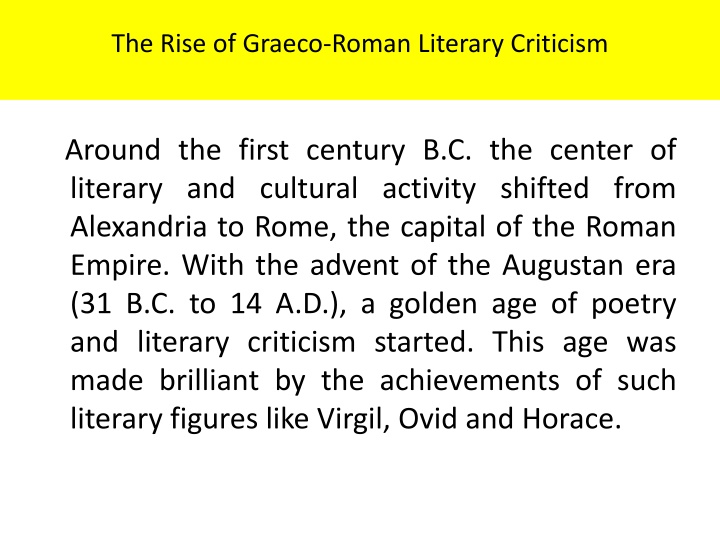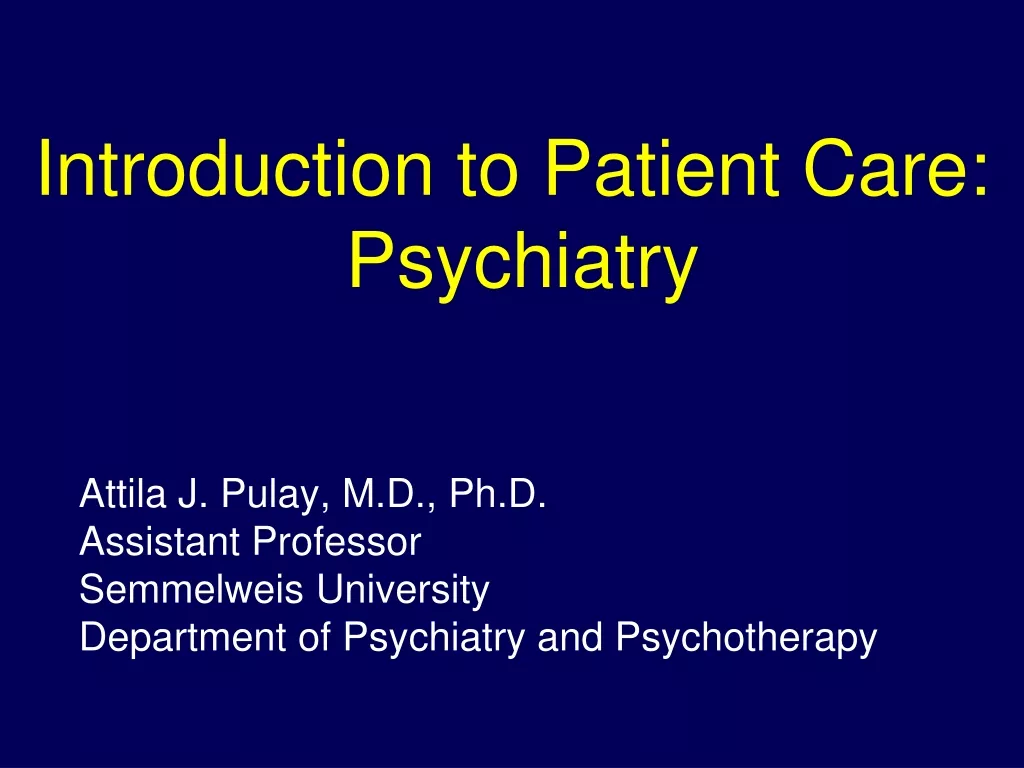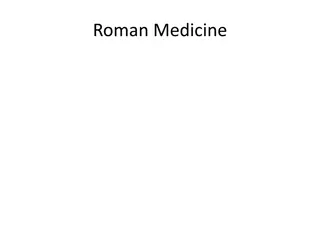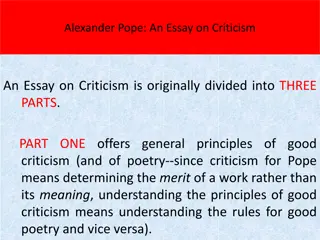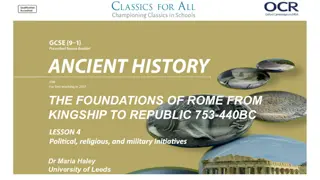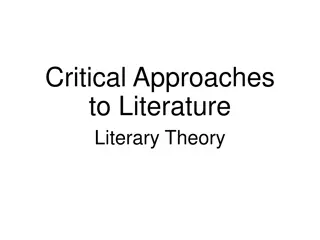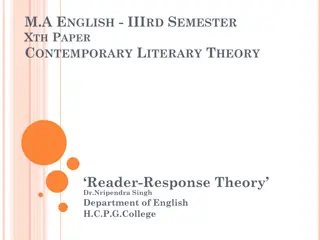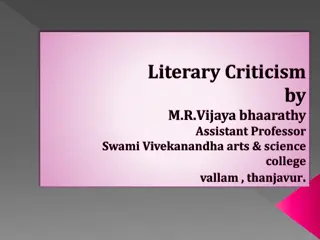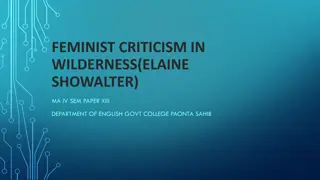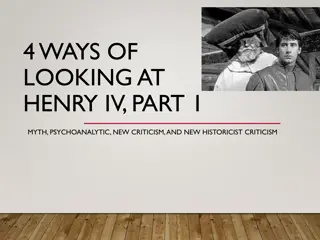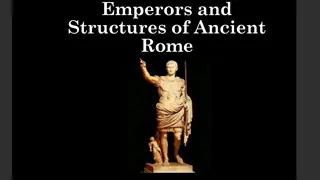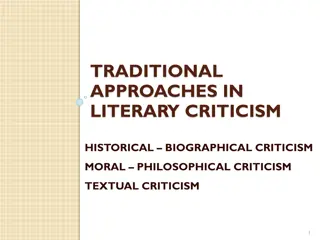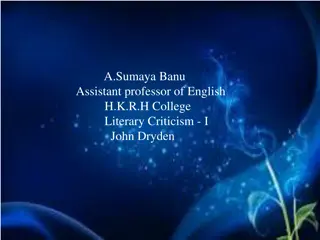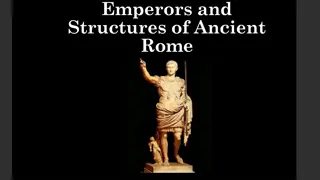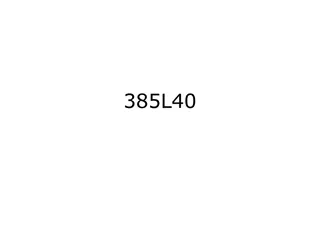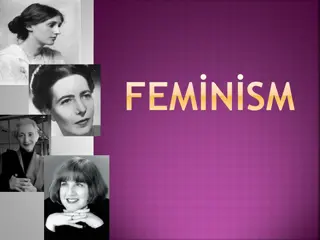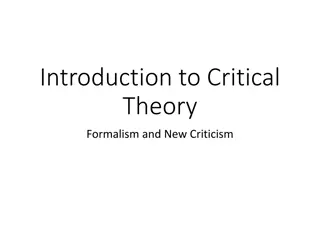The Rise of Graeco-Roman Literary Criticism in Augustan Rome
Around the first century B.C., the center of literary and cultural activity shifted from Alexandria to Rome, ushering in a golden age of poetry and literary criticism during the Augustan era. Factors such as the patronage of King Augustus and a surge of nationalism contributed to this literary renaissance, with writers like Virgil and Horace advocating a revival of the Greek classical tradition. Explore the historical context and influences that shaped this era of literary excellence.
Download Presentation

Please find below an Image/Link to download the presentation.
The content on the website is provided AS IS for your information and personal use only. It may not be sold, licensed, or shared on other websites without obtaining consent from the author.If you encounter any issues during the download, it is possible that the publisher has removed the file from their server.
You are allowed to download the files provided on this website for personal or commercial use, subject to the condition that they are used lawfully. All files are the property of their respective owners.
The content on the website is provided AS IS for your information and personal use only. It may not be sold, licensed, or shared on other websites without obtaining consent from the author.
E N D
Presentation Transcript
The Rise of Graeco-Roman Literary Criticism Around the first century B.C. the center of literary and cultural activity shifted from Alexandria to Rome, the capital of the Roman Empire. With the advent of the Augustan era (31 B.C. to 14 A.D.), a golden age of poetry and literary criticism started. This age was made brilliant by the achievements of such literary figures like Virgil, Ovid and Horace.
The Rise of Graeco-Roman Literary Criticism Various factors contributed to the rise of literary and critical activity during this era. 1. King Augustus (reigned from 27 B.C. until his death in 14 A.D.) and his courtiers were great lovers of art and literature, and they encouraged and assisted writers. 2. The time was a time of peace in which distinction could no longer be achieved through war. Hence, men turned to poetry and literature to gain such distinction.
The Rise of Graeco-Roman Literary Criticism 3. There was an upsurge of nationalism, and the literary men of Rome wanted to equal, if not actually excel, the achievements of ancient Greece, both in literature and criticism. 4. There were many poetasters who were turning to inferior verse, of no literary merit at all, and so were corrupting and degrading public taste.
The Rise of Graeco-Roman Literary Criticism 5. The arrival in Rome of a group of writers of genius from Naples who had studied the Greek masterpieces guidance of eminent Greek writers, and their arrival caused an influx of new ideas, which imposed a fresh life into literary discussions. Virgil was one of them, Horace soon met him and came under encouraged by him. there under the his spell, and was
The Rise of Graeco-Roman Literary Criticism 6. There was also the problem of whether the ancient Greeks were to be followed, or the more modern Alexandrians should be studied and taken as models. Both Virgil and Horace pleaded for the study of the Greek classics, thus a revival of the Greek classical tradition, both in literature inaugurated. and criticism, was
